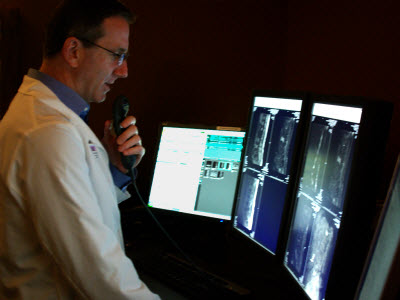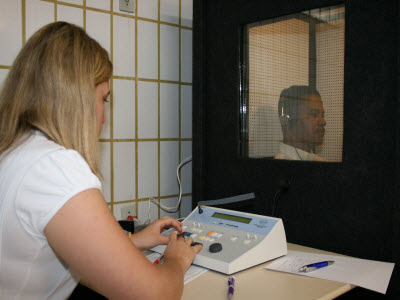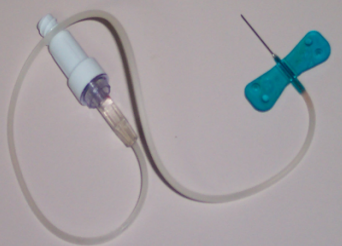Top 23 Radiologist Interview Questions
1) Explain the principle of X-ray in radiology?
X-rays are the type of radiation with a specific wavelength. When it passes through human body, different tissues absorb this radiation differently, depending upon the tissues density. Moreover, based on the body tissue and bone density, it will create an image on the film.
2) What are the radiations and technology that radiologist uses?
Radiologist uses an array of imaging technologies that includes
- X-rays radiography
- Ultrasound
- Computed tomography
- Nuclear medicines
- Positron emission tomography (PET)
- Magnetic Resonance Imaging (MRI)
3) Mention what is the unit to measure x-rays exposure?
The unit of x-rays exposure is impulses.
4) What type of image will it produce when using the bisecting angle technique, directing the x-ray beam perpendicular to the long axis of the teeth?
It will produce an elongation of tooth images
5) Is it dangerous if a person is exposed to x-rays frequently?
If a person is exposed to x-rays for medical purpose, then it should not be dangerous as it emits a low level of radiation. However, if he/she is exposed for longer duration then it will be dangerous.

6) In U.S.A, who regulates the devices used for radiation and monitor its usage?
In U.S.A, The Food and Drug Administration (FDA) monitors the manufacture and sale of the devices. While, State Health Department keeps the watch on the use and release of radioactive materials along with manufacture and sale. NRC (Nuclear Regulatory Commission) and DOE (Department of Energy) will monitor how people work with various devices and radioactive materials.
7) What is an early clinical sign of excessive acute exposure to radiation?
The early clinical sign of excessive acute exposure to radiation is ERYTHEMA.
8) Explain what do you mean by latent effect in radiology?
The latent effect in radiology is referred to the time duration between the exposure to radiation and the findings of clinical signs.
9) What is the optimal temperature of the developer solution in a manual film processing setup?
The optimal temperature of the developer solution is 68-degree F.
10) Explain what is emulsion?
Emulsion is the most important component of x-ray film, it is made up of silver halide crystals suspended in gelatin. The x-rays from the intensifying screens interact with emulsion and transform information to the film.
11) Why a grid is sometimes placed in a cassette?
A grid is sometimes placed in a cassette to avoid scatter radiation from the film and diminishing the detail of the image.
12) What is a type of radiations used in dental x-rays?
In dental x-rays, electro-magnetic radiation are used.
13) List out the differences between X-rays and MRI?
X-Ray MRI
- To capture internal view of the body, X-ray uses radiation – MRI uses the water in our body and the proton in the water molecules to capture the internal view of the body. It uses magnetic radiation
- X-rays are mostly used to study the structure of bones and teeth. – MRI are used for multiple purposes like analysis of soft tissue, spinal cord injury, ligament and tendon injury, brain tumors, etc.
- A complete scam is done in few seconds – Scanning typically runs for about 30 minutes
- Excess exposure may cause irreversible damage like cancer – There is no side effects of MRI
- X-ray does not have efficiency to capture an image from a different angle, patient himself have to adjust their position for taking image from a different angle. – 3D isotropic imaging can be produce and in any other plane with MRI.
- X-rays are cheaper and less space occupying than MRI – MRI needs more room, and its expensive compared to X-rays
14) Why lead foil sheet in the film packet is used?
In the film packet, the lead foil sheet is used to protect the film from the back-scattered radiation.
15) Explain how X-ray tube works?
X-ray tubes are energy converter; it receives the electrical energy and converts into two other forms X-radiation and heat. The electrons are converted to protons information of X-radiation, while the heat emitted is considered an undesirable product.
16) What does an X-ray tube consist of?
An X-ray tube consists of
- Cathode
- Anode
- Expansion bellow
- Tube envelop
- Tube housing
- Cooling di-electric oil
- Rotor
- Induction Stator
- Tube window
17) What is the unit of measuring radiation dosage?
The scientific unit of measurement for radiation dose is millisievert (mSv). Other radiation dose measurement includes rad, rem, roentgen, sievert and gray.
18) What are the cells that are most sensitive to X-radiation?
The most sensitive cells in humans to X- radiation are small lymphocytes. It means over exposure to X-radiation will first affect your immune system.
19) Explain what is densitometer is used for?
A densitometer is used to study the relationship between the intensity of the exposure of the film and the blackness after processing.
20) What is the maintenance process in X-ray unit?
Maintenance processes in X-ray unit includes
- Check for radiation leakage: Once in a month you can check for radiation leakage by checking radiation shielding ( broken window, broken collimator, glass or shutter, hole in the wall)
- Operation in Positive Beam Limitation (PBL): Make sure that the x-rays are inhibited when in the PBL model and not at 72” or 42” SID. This should be done on a daily basis
- Check for filter or mirror: If kV is greater than 49kV even when collimator filter is off, exposure to x-rays must be inhibited. The ready light should be turned off. This check can also be done on daily basis.
21) What is the film that can be used to detect both crestal bone levels and interproximal carries?
Bite-wing is the film that is used to detect both crestal bone levels and interproximal caries
22) Any leaks of white lights into the darkroom may cause?
White light leaks into a darkroom it may cause overdeveloped films
23) List out some hot new areas in radiology?
- Functional MR imaging
- Molecular imaging
- Cardiac MR and CT
- Breast MRI
- PET-CT






